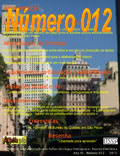Personal letters between Brazilian, Portuguese and Angolan children
DOI:
https://doi.org/10.11606/issn.1980-7686.v6i12p108-130Keywords:
Lusophone community school, learning of the written language, epistolary genre, elementary schoolAbstract
This article analyzes the data resultant of the accomplishment, between 2008 and 2009, of an extension and research project on the international exchange of letters between teachers and students from elementary schools in the towns of Garça and Marília, São Paulo State, Brazil, with a school in the city of Azaruja, Portugal and another in the city of Luanda, Angola. It was developed by a team of students and teachers, UNESP, Marília, in order to promote the exchange via personal letters for that students, between 8 and 9 years old, could take possession of the written language, in this case Portuguese, and understand it as an instrument steeped in culture. The choice of this kind in the world of the epistolary genre was made because it promotes the participation of the Other in the configuration of dialogic relations in the elaboration of the statements, taken as a reference in a Bakhtinian conception of language. It aimed to (1) point, in the letters exchanged between teachers and students between the Portuguese, Brazilians and Angolans in the early years, the evidence of authorship linguistic behavior that could signal the beginning of autonomy in the use of the written modality of language, or signs of submissive behavior; (2) reveal the cultural content of language tools used to construct indicators listed on the customs of each people, including those constituting school doings. For the generation of data were used principles of action research, which enabled direct action, along with Brazilian teachers, and indirectly, in the case of the foreign teachers. From the analysis of the corpus of research - letters exchanged between teachers and students - it is clear that the appropriation of language as a speech act realized in human relations makes the old personal correspondence a powerful instrument of development in the area of the written language.
Downloads
Downloads
Published
Issue
Section
License
Apenas el trabajo es aceptado por el Consejo y la Comisión Editorial, los autores se comprometen a transferir los derechos de autor para la revista "Acolhendo a Alfabetização nos Países de Língua Portuguesa". |


